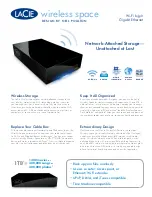
45
•
Using soft state mechanism to maintain resource reservation information.
Extended RSVP can support MPLS label distribution and allow resource reservation information to be
transmitted with label bindings. This extended RSVP is called RSVP-TE, which is operating as a signaling
protocol for LSP tunnel setup in MPLS TE.
Basic concepts of RSVP-TE
1.
Soft state
Soft state is a mechanism used in RSVP-TE to periodically refresh the resource reservation state on
a node. The resource reservation state includes the path state and the reservation state. The path
state is generated and refreshed by the Path message, and the reservation state is generated and
refreshed by the Resv message. A state is to be removed if no refresh messages are received for it
in certain interval.
2.
Resource reservation style
Each LSP set up using RSVP-TE is assigned a resource reservation style. During an RSVP session, the
receiver decides which reservation style can be used for this session and thus which LSPs can be
used.
Two reservation styles are available:
Fixed-filter style (FF) where resources are reserved for individual senders and cannot be shared
among senders on the same session.
Shared-explicit style (SE) where resources are reserved for senders on the same session and
shared among them.
NOTE:
SE is only used for make-before-break because multiple LSPs cannot be present on the same session.
Make-before-break
Make-before-break is a mechanism to change MPLS TE tunnel attributes with minimum data loss and
without extra bandwidth.
NOTE:
If you change key attributes of an MPLS TE tunnel, such as tunnel destination, priority, CT, and protocol
type, the router will delete the MPLS TE tunnel and then re-establish it. In this process, the
make-before-break mechanism does not take effect.
Figure 15
Diagram for make-before-break
















































